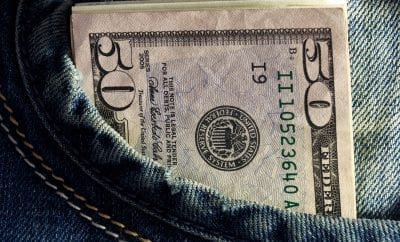News
Student Loan Repayment has Become Increasingly Difficult for Graduates
The student loan crisis continues to intensify, as students find it increasingly difficult to pay off thousands of dollars of debt after attaining a degree. A survey conducted by financial education provider EVERFI showed that 53% of students polled did not feel like they had the financial know-how to handle their finances and pay off student loans.
Americans have a total of $1.57 trillion in student loan debt, with the average student graduating college with around $37,000 in loans. If financed at the standard repayment schedule with an average 4.29%, students would be paying back these loans for more than a decade.
However, this is not the case for 35% of students polled in this survey. These students said they do not intend to pay off that debt in time and in full. This figure is up from 12% compared to a similar survey taken seven years ago.
What’s even more troubling is the fact that student loans are not the only kind of debt university graduates are carrying. 46% of the surveys respondents said they carry at least one credit card, and 36% of respondents say they carry at least a $1,000 balance.
“I think that in many cases the debt burden feels overwhelming in the amount of money owed relative to what people are earning,” says Rob Scheinerman, president of AIG Retirement Services. “In some cases, people are unemployed, or underemployed, just makes it feel like it’s an intractable problem.”

All of these point to a clear lack of financial literacy among university graduates, a subject that is often skipped over in high school and college curriculum. This has prompted employers to step in and become more attuned to address the financial concerns of potential talent.
Employers are now offering perks like increased 401(k) contributions as long as a portion of the employee’s wages goes towards paying off student loan debt. Others companies like Fidelity and Aetna are offering student loan repayment assistance, offering sums up to $2,000 per year to whittle down student loans.
Perks like these still do not appear to be enough, especially for students who take out loans to attend private universities. Loans for such an education quickly pile up into six-figure territory, and that can go even higher when seeking higher education like a Masters degree.
The student loan crisis has been a hot topic for the upcoming election as well. Politicians like Elizabeth Warren and Bernie Sanders have proposed student loan forgiveness programs in their 2020 election bid. This will be a highly debated issue as we enter into the election season next year.




0 comments